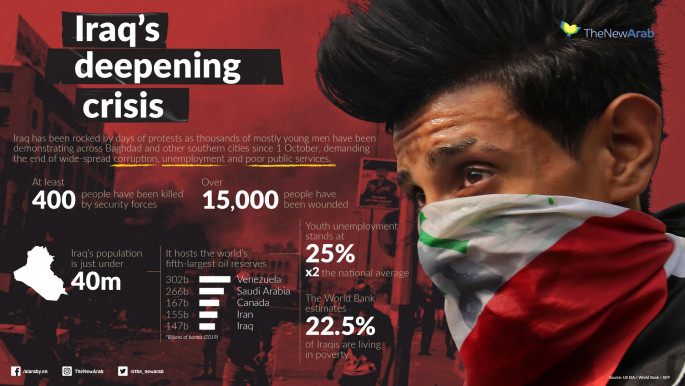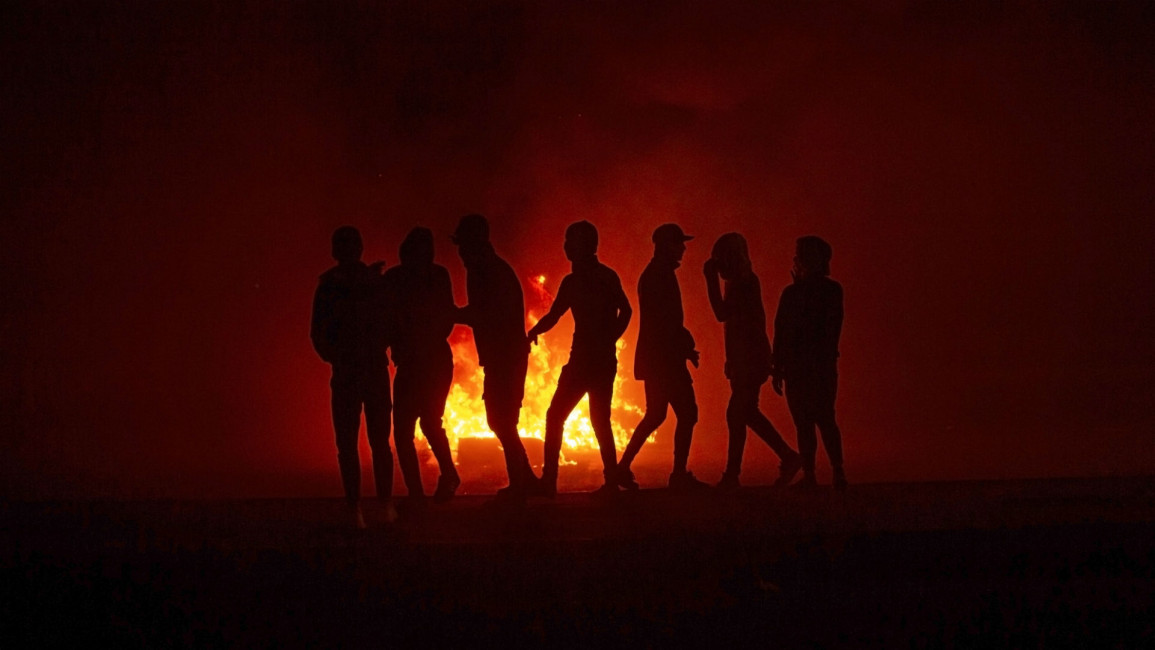Iraq protesters shut down oil field as political deadlock continues
Hundreds of people shut off access to the Nassiriya field, located 300 kilometres (190 miles) south of Baghdad, oil and security sources told Reuters.
Chanting "no homeland, no oil", demonstrators managed to force the closure of the field, which produces 82,000 barrels of oil per day. Electricity to the control station was turned off and employees have been prevented from accessing the site.
The two-day-old blockade marks the first time anti-government protesters have disrupted operations in OPEC's second largest producer since the popular uprising broke out in early October.
Demonstrators have blocked the entrances to refineries and Basra's key Umm Qasr port in the past months, however.
The youth-led protests, mainly centered in the capital and Iraq's southern Shia-majority provinces demand the ousting of the entire political class that has run the country in the aftermath of the 2003 US-led invasion.
Demonstrators accuse the ruling class of ineptitutude, economic mismanagement and endemic corruption, as well as being beholden to foreign powers.
Sit-in protests have shut down state offices and schools across the south for weeks, and demonstrators again declared a "general strike" in Diwaniya on Sunday, the first day of the working week.
Mass rallies and picket lines also paralysed Kout, al-Hilla, Amara and the shrine city of Najaf, AFP reported.
Read more: Protests bring Iraq's muhasasa system to its knees
The protests have continued despite being met with batons, tear gas and live rounds in violence that has claimed at least 490 lives, according to the semi-official Human Rights Commission. More than 25,000 have been wounded.
|
|
That figure includes 33 activists assassinated in a spate of targeted killings which many protesters have blamed on Iran-linked militias. Dozens more protesters have been abducted, with more than 50 remaining missing.
Demonstrators scored a partial success in November with the resignation of Prime Minister Adel Abdel Mahdi, who remains in charge in a caretaker role.
Pro-Iranian and other political factions have since wrangled over finding a successor - so far without success.
Although parliament has just voted for an electoral reform package, there has been no indication that the early polls many citizens are calling for will be held anytime soon.
Heightening the turmoil, President Barham Saleh last week threatened to resign rather than put forward the name of an pro-Iran candidate to form the next government.
In a letter to parliament, Saleh said he wished to guarantee the "independence, sovereignty, unity and territorial integrity" of Iraq.
Iraq's constitution obliges the president to task the candidate put forward by parliament's biggest bloc with forming a government. Parliament's largest bloc is the Iran-linked Fatah bloc which earlier this week nominated Basra governor Asaad al-Eidani as premier.
The president said he would rather resign than give Eidani, rejected by protesters as Iran's candidate, the responsibility of forming a government.
Agencies contributed to this report.
Follow us on Twitter and Instagram to stay connected



